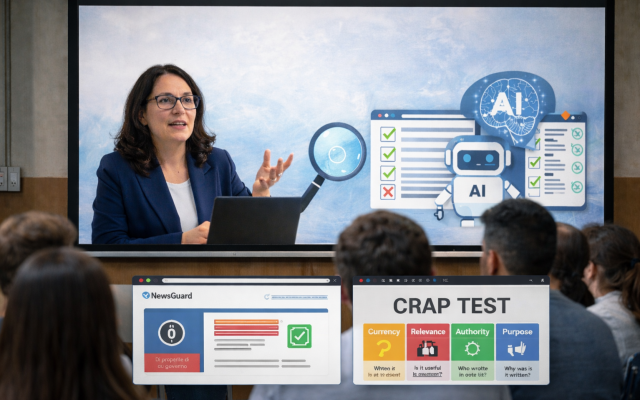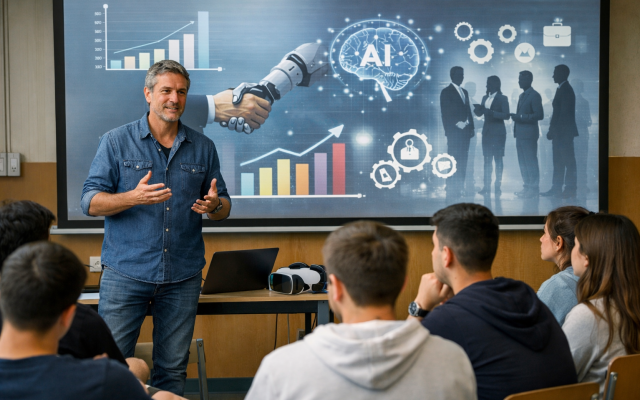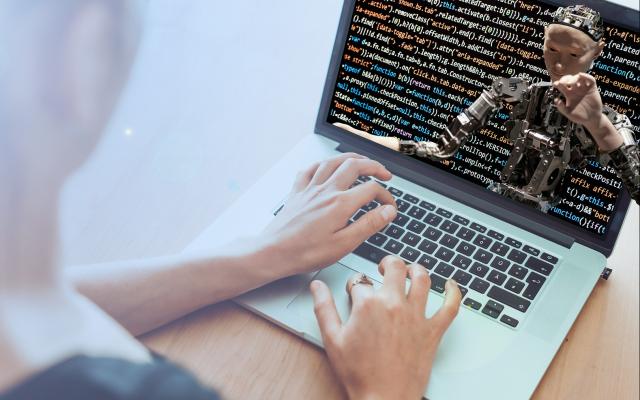Ital.IA Lab at the Istituto superiore Guido Tassinari in Pozzuoli.
Enrico Leone he is a professor at the Istituto superiore Guido Tassinari in Pozzuoli (Naples) in Campania, a school directed by Teresa Marino. This year Prof. Enrico was also a coach for Ital.IA Lab. In his dual role, he provides us with a unique perspective on the impact that these activities have (or can have) on teaching, the local community, and young people.
What was the most significant feedback you received from participants?
“Even though the professors approached the use of GenAI tools such as Copilot for the first time, they immediately understood their potential. Copilot, in particular, was also appreciated by the students, especially for its reliability and reference to sources. What scared them most was the prospect of the incorrect or illegal use of these tools, as in the case of deepfakes.”
How can can AI help to innovate didactics?
“In my opinion, we should change approaches, methods, and perhaps even content. I think the homework we still assign kids is anachronistic. We should learn to exploit the enormous multidisciplinary potential of AI to involve students in projects, rather than homework. For example, I would challenge them to think about methods and techniques for computerising a museum. This would help them to better master both sciences and humanities.”
An interesting point of view, certainly also shared by the students, who are now increasingly interested in experimenting with new learning methodologies. In order to find out their point of view, we also chatted with Raffaele, a Tassinari student now in his final year.
Raffaele’s Passion for Computer Science
At just 18, Raffaele already has clear ideas about his future and that of IT. “Everything related to information technology and technology interests me and fascinates me,” he states with enthusiasm. His curiosity is insatiable: “I've always been curious about the why of things. How does WhatsApp work, what's inside a PC? In short, I always wanted to explore what lurks behind the scenes.”
His adventure in the digital world took a significant turn thanks to Project Ital.IA Lab and his professor who introduced him to generative artificial intelligence tools. “The professor really helped us to understand how they work,” says Raffaele. “I think it is a very useful resource, especially from an IT point of view.”
Raffaele began using artificial intelligence for the same reason as many other students: “to get help with homework.” However, he soon discovered that AI does much more. “It really helps me learn. Search engines are saturated with information, but generative AI helps you navigate the ocean of information.”
When he encounters difficulties, Raffaele doesn't hesitate to ask his digital Copilot for help. “When I don't understand a concept or topic, I ask Copilot to explain it to me again in different ways until I really understand.” This ability to interconnect different disciplines is what fascinates him most about AI.
Looking to the future, Raffaele is optimistic. He is not afraid that AI could replace human work; on the contrary, he is eager to see its further development.
However, one reflection worries him: the lack of gender diversity in his field of study. “In my class, we are all boys” he observes. “Well, since I'm very interested in the behind the scenes, I would worry about finding only men, both now and in the future.”
Raffaele hopes in a change, in the near future in which “the number of women in the world of technology and IT increases,” especially in view of the changes in the working world.




